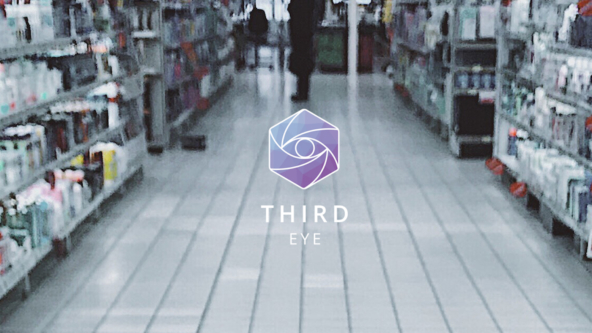Octopus Ventures backs next-generation entrepreneurs who are driving significant change in three key industries or ‘pods’. These are the Future of Health, the Future of Industry and Deep Tech. We asked Simon King, Partner at Octopus Ventures, to share the five key Deep Tech trends that offer the potential to power the next industrial revolution.
Will artificially intelligent robots end work as we know it? That’s one of the big questions Octopus Ventures’ Deep Tech pod is debating. Deeply immersed in the latest technological thinking, the pod discovers and backs the entrepreneurs who will reshape the way we live, work, and build things.
“The industrial revolutions of the past were driven by innovations like steam power, electricity, transistors and microchips,” explains Simon. “We’re looking for technology that will have that kind of impact.”
So, how does the Deep Tech pod spot genuine game-changers among ‘everyday’ innovations? “We spend a lot of time tracking the past and thinking about future trends,” says Simon. “We get proprietary insight from companies who come in to talk about their latest ideas. We also go to conferences, speak to academics and experts, and read a lot too. Everyone in this pod lives and breathes technology.”
As you might expect, this landscape is constantly changing, but there are five areas that Simon and the Deep Tech pod are particularly excited about.
-
Merging human and computer interaction
“In a short period of time, we’ve gone from using mainframe computers located miles away, to carrying computers in our pockets,” says Simon. “Brain sensors are some way off, but Augmented Reality and Virtual Reality are already bringing humans and computers even closer together.”
Waveoptics, backed by Octopus Ventures, designs and builds pioneering Augmented Reality displays. Positioned like the lens in a pair of glasses, Waveoptics’ transparent displays allow digital information to be superimposed on a user’s view of the outside world.
Where this technology might take us is still an open question – and according to Simon, that’s the way it should be. “We don’t need to have a precise vision of the future – that’s the job of science fiction. I think about our work like shovels and gold miners. We’re not hunting for gold. We’re backing the people who make the shovels.”
Predicting the future might be the work of science fiction, but history can still give us clues. “Looking back gives us a very broad idea of how the future might look,” explains Simon. “The physical distance between humans and computers has dropped so dramatically, I believe that they’ll sit within our bodies in the near future.”
-
Sophisticated coding
It takes a lot of work to make things simple. A major focus in software development right now are ‘low code/no code’ platforms, that allow non-developers to build web or mobile apps. “Coding used to be a very precise language, but with AI, we can use data to show computers the difference between right and wrong,” says Simon.
Amplience, part of the Octopus Ventures portfolio, is transforming the world of e-retail with their beautifully simple Content Management System (CMS) platform. Designed to empower marketers, planners and creatives to build cutting-edge e-retail experiences, Amplience’s platform means that traditional bricks and mortar retailers can build strong online stores, without technologists or deep e-commerce experience.
-
Intelligent robotics
Often, the technology that the Future of Industry pod backs is so advanced that there isn’t a ready market for it, but Dogtooth is an exception. The company’s harvesting robots use machine vision and AI to intelligently detect and pick ripe strawberries.
“Strawberry picking is a complicated problem, because each fruit ripens and grows differently. It needed a level of intelligence that we couldn’t give robots – until now.”
Dogtooth’s AI robots are so effective, Simon thinks they’ll be common to strawberry fields within five years. “From there, this technology can take us all kinds of places – different fruits, or in packing and sorting for example. It’s a really interesting next wave in automation.”
-
Edge computing
According to Simon, we’ll see a big impact from edge computing over the next ten years, because it can solve problems like bandwidth, processing speeds, and online security.
Edge computing allows data to be processed by local devices, instead of sending it back and forth from centralised data centers. And with faster processing comes the potential for real-time data analysis – which is critical to time-pressured industries like healthcare.
-
Synthetic biology
Simon describes synthetic biology as “coercing life to do useful non-life work”. Manipulating DNA into next-generation information storage is one promising area. “DNA is very small and compact, and lasts for an incredibly long time,” he says, “Humans have been able to extract information from animal DNA that’s millions of years old. Imagine what it could do for information storage.”
At the forefront of change
With so many exciting technological developments in store, the future looks uncertain – in a good way. “It’s not up to us to build or predict the future. But, by keeping our finger on the pulse, and seeing the opportunities that entrepreneurs see – we’ll continue to be at the forefront of change.”
For more information about the Deep Tech pod, and how Octopus Ventures is helping pioneers to change the world, visit octopusventures.com.


